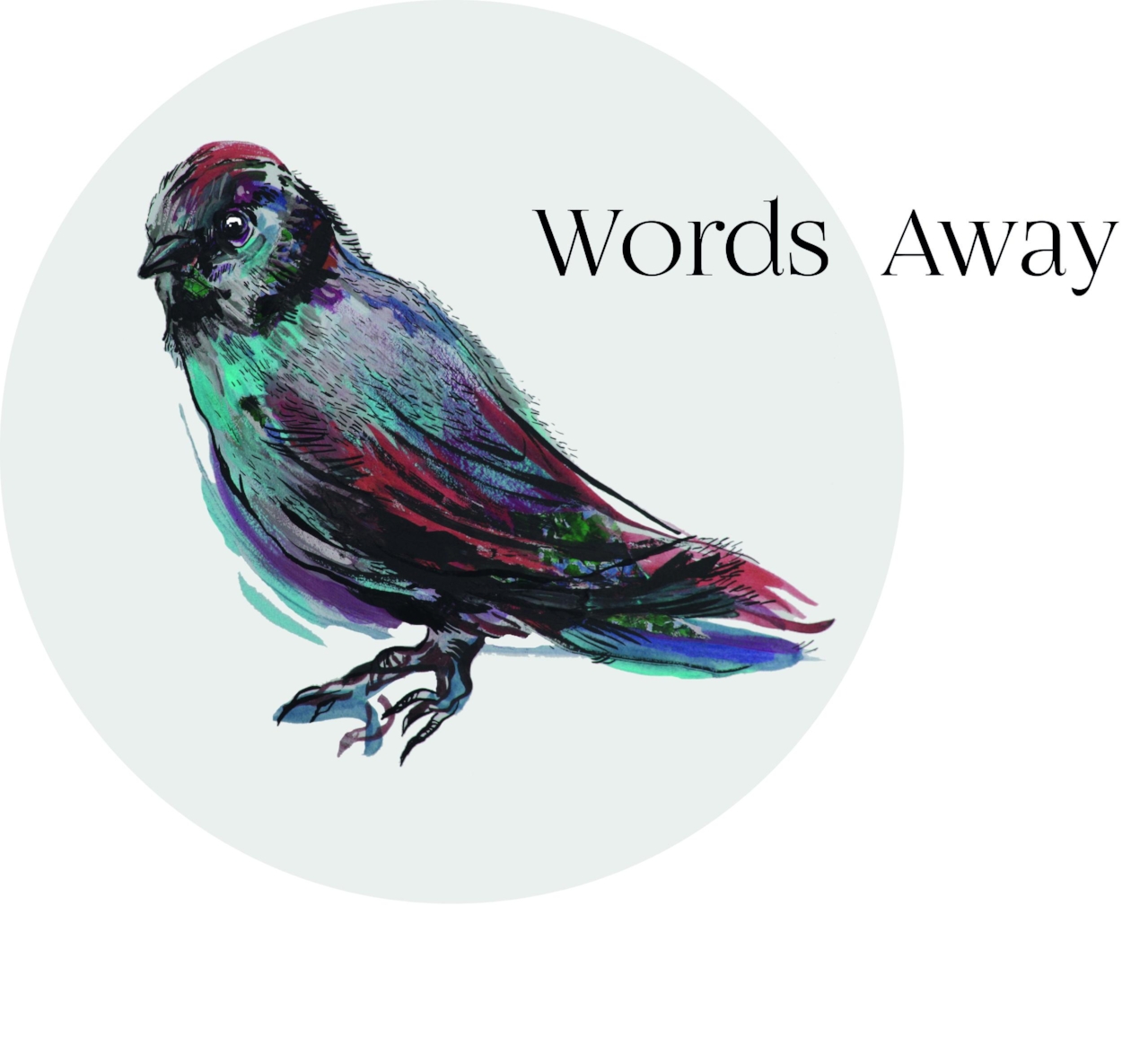Last Monday, while Storm Ophelia battered the western British Isles, we in London got off lightly. It was day of strange weather and weird energy but by the time we gathered at the Teahouse Cafe for Words Away that evening, everyone soon forgot the weather, captivated by our salon guest, Jill Dawson.
Spooky skies and eerie light over South London last Monday.
Jill has a background in psychotherapy which has shaped her writing process. After the publication of two autobiographical novels, she made the deliberate decision to base her third novel, Fred and Edie, on a known case about the hanged murderess, Edith Thompson. Adopting the mask of real events or people, enables her to explore intimate private subjects through the prism of fiction.
Emma Darwin, Jill Dawson & me, Kellie (photo by Frances Owen)
Ideas for novels pop up spontaneously. Certain subjects, like criminals, can be troublesome for obvious reasons but assuming they're safely dead, Jill follows her subjects wherever the compulsion leads. She knows she’s on the right track by her reaction to the subject: this varies from, 'Oh My God I can’t do this,' to a rising anxiety or sense of transgression that she might upset someone related to the subject. The stronger the compulsion or the more she feels it’s not her subject - the more she wants to write it!
Jill doesn't plan her novels nor start with a synopsis. She researches her subject extensively, reading and traveling, until it enters her subconscious. This ‘logic of dreaming’ feeds the instinctive part of her imagination. Too much rationalising is dangerous. Her tried and true method - and she’s working on her 10th commissioned novel - is one of trial and error. You have to show up, sit down and do the work! Two of her favourite writers, Siri Hustvedt and Michael Ondaatje, work in a similar way. How do you know if it’s any good? Jill’s friend, the late poet E. A. Markham once advised: Ask yourself, when you read your own work is it alive or is it dead?
One of the pleasing aspects of writing fiction about real characters is that the ending is a given. The challenge for the novelist is how to keep the reader interested. When struggling under the weight of facts ask yourself why did you want to do this story. What pulled you there in the first place.
Other Key Points:
Don’t get hung up on facts or get stuck on pedantic details. All the writing has to do is persuade the reader on the page!
Research: Inhabit the world of your subject. Whether you're looking through an archive or visiting a location, be open. Find surprises. As Emma said, fortune favours the prepared mind.
Employ an immersive technique, like a method actor. Feel your way in. Develop a feel for what serves you. Read letters, diaries, listen to recordings. Use your body, get physical, make it new. Use your senses and be playful. This will help you depict a physically experienced world. Think of Hilary Mantel, who takes the reader by the stomach & nose through the world of Wolf Hall.
Shut down certain lines of enquiry & avoid research that does not serve your specific interest. With Jill’s recent novel, The Crime Writer, about the novelist Patricia Highsmith, she avoided travelling to Switzerland where the writer lived for some time, and didn't read her diaries. Instead Jill explored the less travelled aspects of the novelist’s early life in America where she discovered unique raw material to fictionalise.
Write a draft and research retrospectively.
Read biographies. Read widely around your subject. The same information looked at over and over can reveal different truths. A biographer like Richard Holmes or Michael Holroyd will bring a character to life on the page. This is a rare gift. Biography is an art form not a science.
Keep a separate handwritten journal focusing on process as you write your novel. It’s a useful tool to reference when you're working on future projects.
Every novel is different - disguising yourself is the pleasure of the fiction!
Jill's takeaway message: ask yourself, could you do this as a work of non-fiction? What does fiction know or do that other art forms don’t know or offer? Fiction has it’s own magic. It’s an invitation between two imaginations - the writer and the reader. We turn to fiction for something that can’t be answered in other ways, to ‘feel something’.
With enormous thanks to Jill for being so generous and candid about her process. Likewise to Emma Darwin for leading an intriguing discussion and to all who joined us at the Teahouse for a fab evening.
Gladstone, the other Teahouse cat
Next month, on the 6th November, we’ll be meeting the novelist, short story writer and creative writing professor, Tessa Hadley to discuss, Short or Long: Form in Fiction. I can’t wait! It’s worth booking ahead to secure a place. Likewise, we still have places available, although they're going fast, for Everyday Magic: the Four Elements of Creativity workshop with Andrew Wille on Monday 18th Nov.
Hope to see you soon!
Kellie
Links: Siri Hustvedt, Michael Ondaatje, E A Markham, This Itch of Writing Blog: Yours To Remember Mine To Forget, by Emma Darwin, Wolf Hall by Hilary Mantel
Jill Dawson with Emma & me





